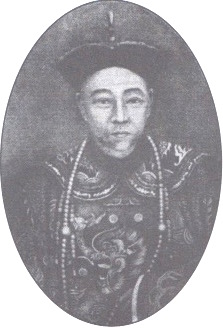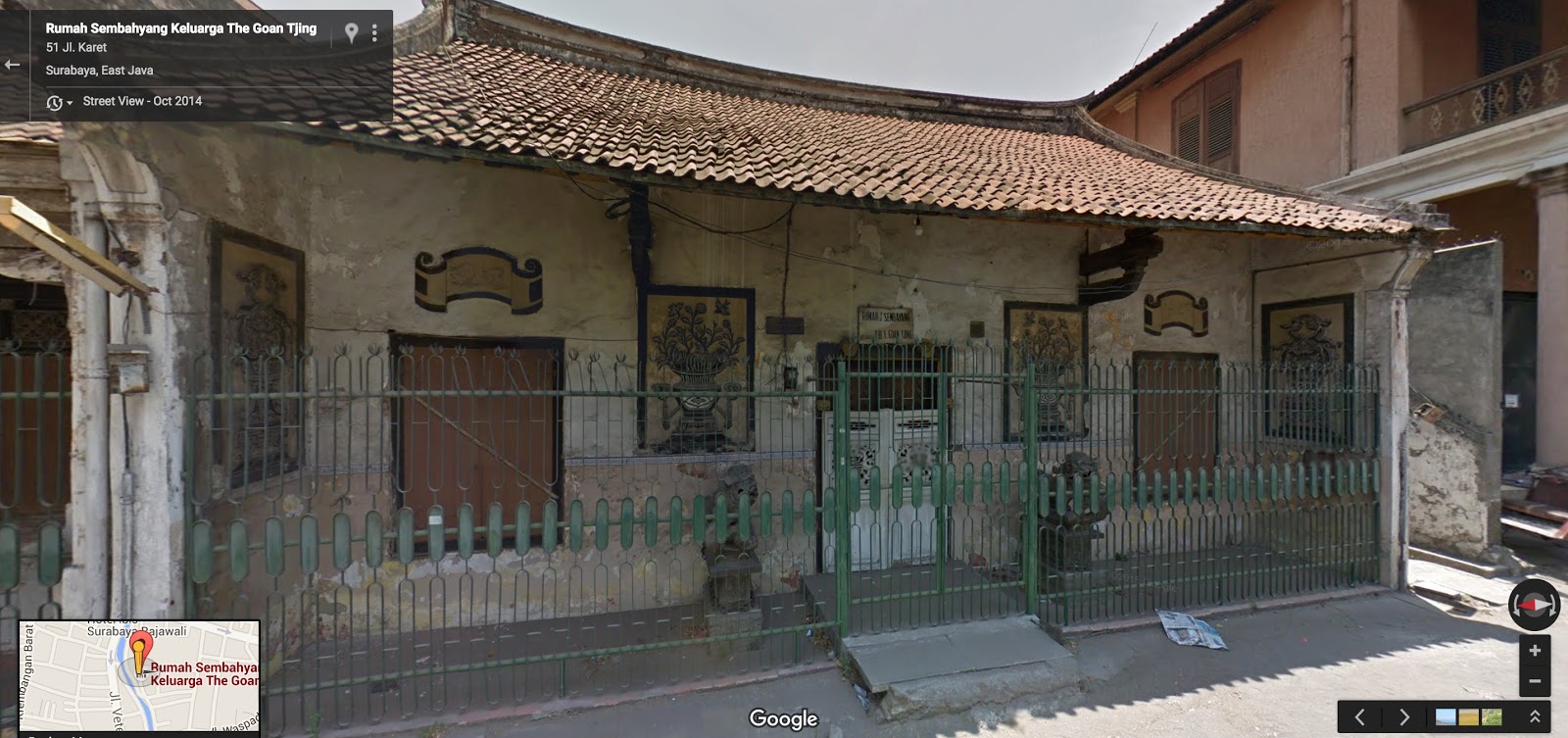Origins of Kapitan
“You can call me Kapitan”
Every so often friends ask me how a Chinese Indonesian ends up with such a name. Although its etymological origin is quite evident, you would not expect it to be related to the Indonesian coupe d’etat in 1965, the clans of the Moluccas and an infamous Chinese eunuch explorer named Zheng He.
Originally, my paternal’s family name was The. If I had been given a Chinese name it would have been something like The Kong Bing, where Kong is the generation name me and my brothers (I have none) would have had. Incidentally, I do have two cousins who actually bear this name, i.e. The Kong Han in the Netherlands and The Kong Gwan in Los Angeles.
The roots of my father’s family are well documented, since we are the descendants of the Kapitan China of Surabaya:
Kapitan China was a title given to leaders of overseas Chinese enclaves in Southeast Asia. The local 15th century rulers of the region, and later the colonial establishment, chose to deal with a single individual from each ethnic group under their rule. In native harbour cities, resident Chinese often took the role of syahbandar, master of port, collecting dues and supervising traffic in the name of the ruler.
taken from the encyclopedia of the Chinese overseas.

As the local rulers of the Peranakan China (literally: children of the Chinese) in Surabaya, my forefathers were quite well off. Our family is named after The Goan Tjing, who was the first to make it to the rank of majoor, one rung up the social ladder, above kapitan. As a testament to his achievements, the family shrine is still in place on JI. Karat 50 Surabaya, although I am not sure for how long: my dad tells me that local authorities are looking to demolish the place to make way for urban development. Tracing back the diaspora of the Chinese in Southeast Asia, one inevitably arrives at Zheng He, China’s most famous sea-faring explorer. Family legend has it that we are direct descendants of this admiral of the Chinese fleet during the Ming dynasty. He was castrated in his teens.

How my dad changed his name
Surprisingly enough, the Kapitan China are not the reason why I was born as Kapitan in Jakarta on September 9, 1973. Our family name has a different origin, namely that of Kapitan Pattimura, a Moluccan rebel-hero. The Kapitan are quite a well-known family on Seram. Here, the title Kapitan refers to the warrior chiefs that lead their people in the battle for independence against the Dutch. Moluccan legend has it that the four Kapitans Wattimena, Wattimury, Nanlohy, and Talakua were once the leaders of the Country of Nusa Ina, aka the Mother Island. Their ventures along the Tale river led to the discovery of many places in the Moluccas. What once was a legendary title was in time adopted as a family name.
It is a matter of historical contingency that my father choose to take-up the name of his best friend in the early 1960s. Joshua Oppenheimer’s dyptich, the Act of Killing and the Look of Silence recount the backdrop of anti-Communist and, therefore, anti-Chinese sentiments that led to the forced renunciation of Chinese surnames in Indonesia. My dad, then in his teens, did not take matters too seriously and nearly missed the deadline for changing his name and getting his new passport. On an impulse, he asked his best friend, Gerard Kapitan, whether he could take up his name. So, rather than adapting The to an Indonesian-sounding alternative (we have Tedjasurya and Themasoa in our family), The Sik Thay became Frederik Kapitan in 1964. We recently found out that the male lineage of the Kapitan family was in fact broken. Gerard’s (grand?)mother specifically asked for permission to take-up this name once again if and when she bore a son. Franz Kapitan (Gerard’s brother) told us that if the elders hadn’t honoured her request, we all would have been called Tentua.
Fast forward 50 years later. Our two boys, Manu Lee and Mas Lee, don’t know better than that their last name is Kapitan. A cool and unusual name, which we love to show off by using online-handles such as El Kapitan. And yes, we re-instated the Chinese generation name. I was quite delighted when my sister asked me to become guardian of her first-born, Justin Lee Kragten.
A couple of years ago I befriended a Chinese young lady, and I shared this story with her. One thing led to another, and ultimately she helped me re-discover an appropriate Chinese name, 郑空慈, which more or less translates into “Emptiness & Loving-Kindness, carried by someone from Zheng’s family”. And thus I came full circle.